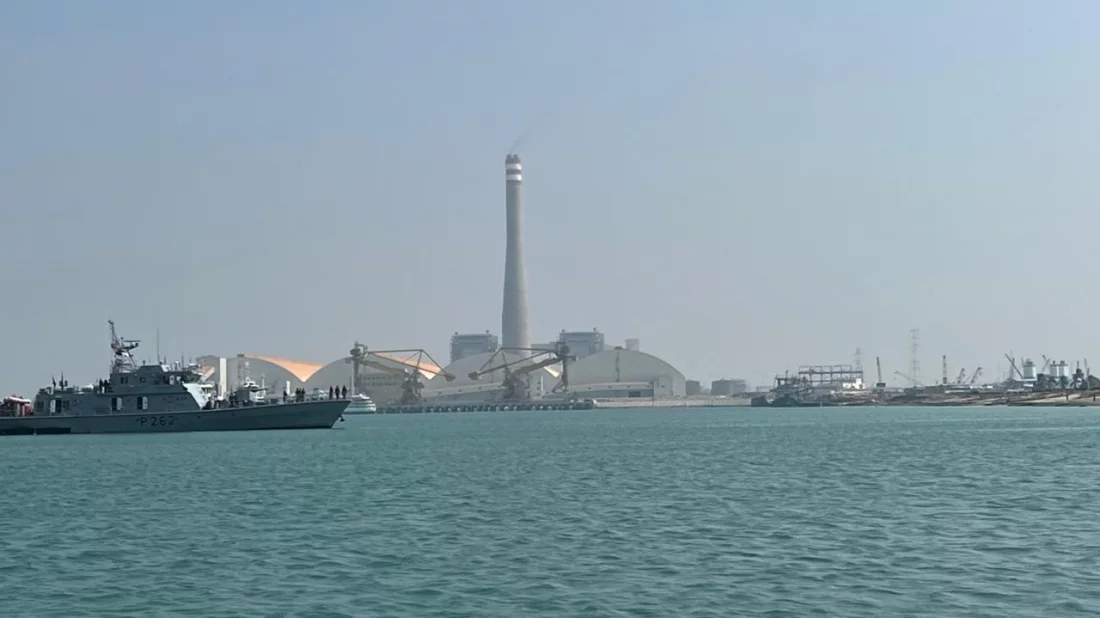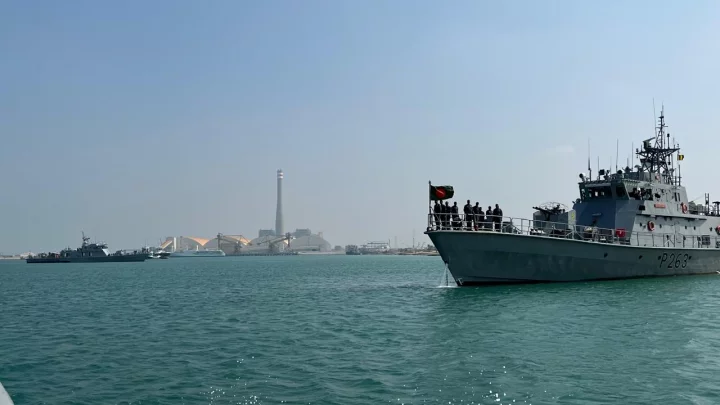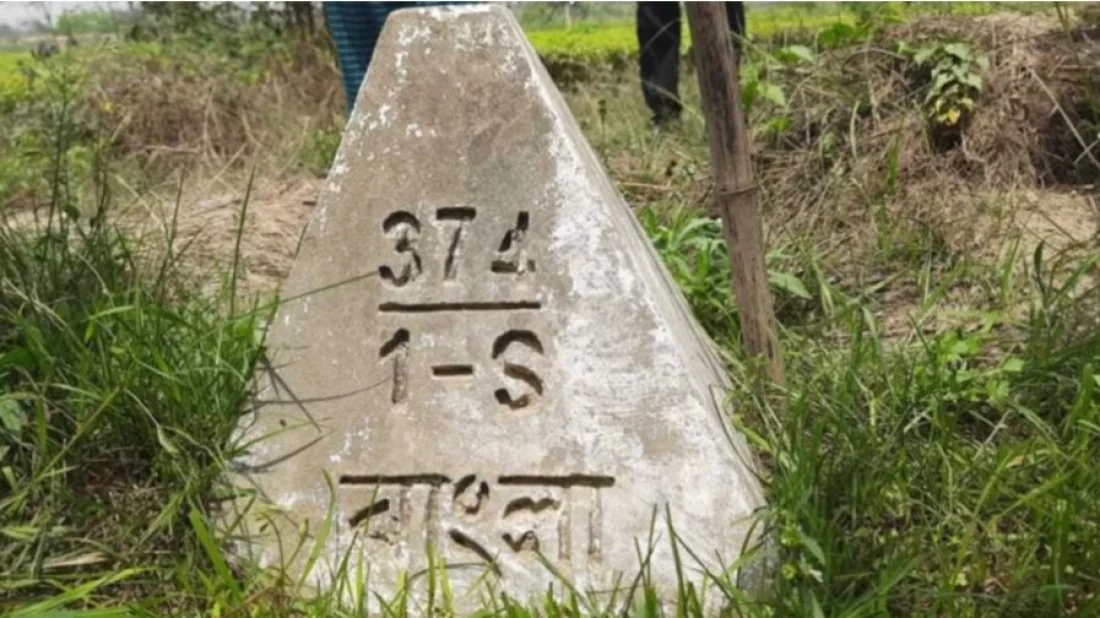
Indian External Affairs Minister S Jaishankar highlighted Northeast India's newfound benefits from improved India-Bangladesh relations at a recent event in New Delhi.
While discussing Northeast India's integration with Southeast Asia and Japan, he emphasized the region's historical obstacles post-partition and praised recent strides, particularly the implementation of the land boundary agreement in 2015, for fostering cooperation and development opportunities.
His comments have generated new enthusiasm about what is happening in India's northeast with the collaboration of Bangladesh and Japan.
Japan is spearheading the construction of the Matarbari deep-sea port in Bangladesh, aiming to connect India's northeast with Bangladesh and foster regional economic growth. This initiative aligns with Japan's Indo-Pacific strategy and India's Act East policy, with significant potential for trade and investment.
"Overall, the trilateral cooperation aims to strengthen economic partnerships, enhance maritime security, develop industrial value chains, and improve connectivity in the region," Dr Abdullah-al-Mamun, associate professor of the Department of Japanese Studies at Dhaka University, told Dhaka Tribune.
International relations expert Prof. Shahab Enam Khan said that together Bangladesh and Japan aim to raise the economic profile of India’s Northeast, reducing regional disparities and insurgency.
This collaboration prioritizes collective security and multilateralism, focusing on peace in the Indo-Pacific region, Prof. Khan, at the international relations department at Jahangirnagar University, told DhakaTribune.
"This is necessary because instability has a spillover effect on Bangladesh,” he said.
Japan has long been involved in building the Matarbari deep-sea port in Bangladesh. However, Prime Minister Fumio Kishida’s policy speech last year in May in New Delhi was an eye-opener for many.
"Viewing Bangladesh and other areas to the south as a single economic zone, we will promote the Bay of Bengal-Northeast India industrial value chain concept in cooperation with India and Bangladesh to foster the growth of the entire region," Prime Minister Kishida had said.
Referring to the comment, Prof Mamun said both Japan and India have “significant, serious, and senior-level commitment. That means this region has high economic potential.”
“It's a top-level priority particularly for Japan and India. India has adopted an Act East policy, financial dependence of which is on Japan,” he said, adding that the Matarbari deep-sea port will be a trade gateway for the landlocked Northeast India.
“India is establishing an Integrated Check Post (ICP) at Sabroom to make it a hub to connect Matarbari through the Sabroom-Ramgarh road connectivity,” he said.
“The Northeast has significant potential in terms of becoming a value chain with its agriculture, horticulture, processed food, handmade fibre, handicraft, automobile, pharmaceuticals, and rubber products.
“Japan also takes interest because it is relocating its production hub from China and ASEAN countries. Cheap labour in Bangladesh and India's Northeast is an attraction for Japan,” he said.
Bangladesh will also gain from the maritime security point of view, he said, explaining that Japan and India are Quad members along with Australia and the US.
And Japan has recently brought Bangladesh under its Official Security Assistance (OSA) for the benefit of armed forces and other related organizations by providing materials and equipment as well as assistance for infrastructure development based on the security needs of the country.
Prof Shahab Enam Khan said Bangladesh-Japan bilateral cooperation has become a “regional role model” based on age-old genuine commitments and the spirit of common development.
“Both countries see that economic and security stability in Bangladesh’s neighborhood is required for sustainable regional growth,” he said.
“For example, Japan’s Big-B initiative will significantly impact Bangladesh’s socio-economic growth, and scaling up such an initiative has the potential to stabilize Rakhine in Myanmar, too.
“A Bangladesh-Japan joint partnership can help uplift the insurgency-prone Indian Northeast’s economy and livelihoods, where multidimensional poverty and growth retardation are widely prevalent.
“I think this bilateral cooperation has the potential to help minimize Indian regional disparity between and within them,” Prof Khan said.
In terms of economies of scale, he said: “it is more pragmatic to see trilateral cooperation as an effort to minimize economic root causes behind instability in the Indian Northeast rather than significant trade gains for Bangladesh.”
“After all, instability has a spillover effect on Bangladesh,” he said.
“Bangladesh and Japan believe in multilateralism and collective security, which are required to preserve and promote peace in the Indo-Pacific region. Hence, bilateral security cooperation regarding peacetime deployment, Bangladesh’s strategic autonomy over its maritime territory, and the transfer of advanced maritime technologies will help keep the Bay of Bengal free and open for global trade,” he said.
“Hence, the bilateral security cooperation, prioritized under Japan’s OSA, reflects Bangladesh’s national interest based on a commitment to stability in the region where India and Myanmar are crucial partners.
“Bangladesh has always remained committed to a common development agenda conducive to its growth and prosperity instead of a hyper-security agenda. The country took initiatives such as SAARC, hosting BIMSTEC Headquarters in Dhaka as part of its commitment to pragmatic regional cooperation.
“I think Japan can focus on revitalizing and strengthening these two institutions in the coming days for greater regional cooperation,” said Prof Khan.
“From Bangladesh’s perspective, regional cooperation should not be confined to a sub-regional level. Bangladesh’s economy certainly needs expansion by connecting itself with Central and Southeast Asia," he said.
Challenges include trade integration and addressing trade deficits, with the need for cooperation to overcome barriers and facilitate investment, said Japanese Studies teacher Dr Mamun.
Civil society engagement and addressing security concerns, such as insurgencies in the northeast, are also crucial for success.
“Japanese companies are eager to set up their factories inside Bangladesh along the border due to security concerns in the northeast. But India will certainly want those investments in the Northeast,” Dr Mamun said.














